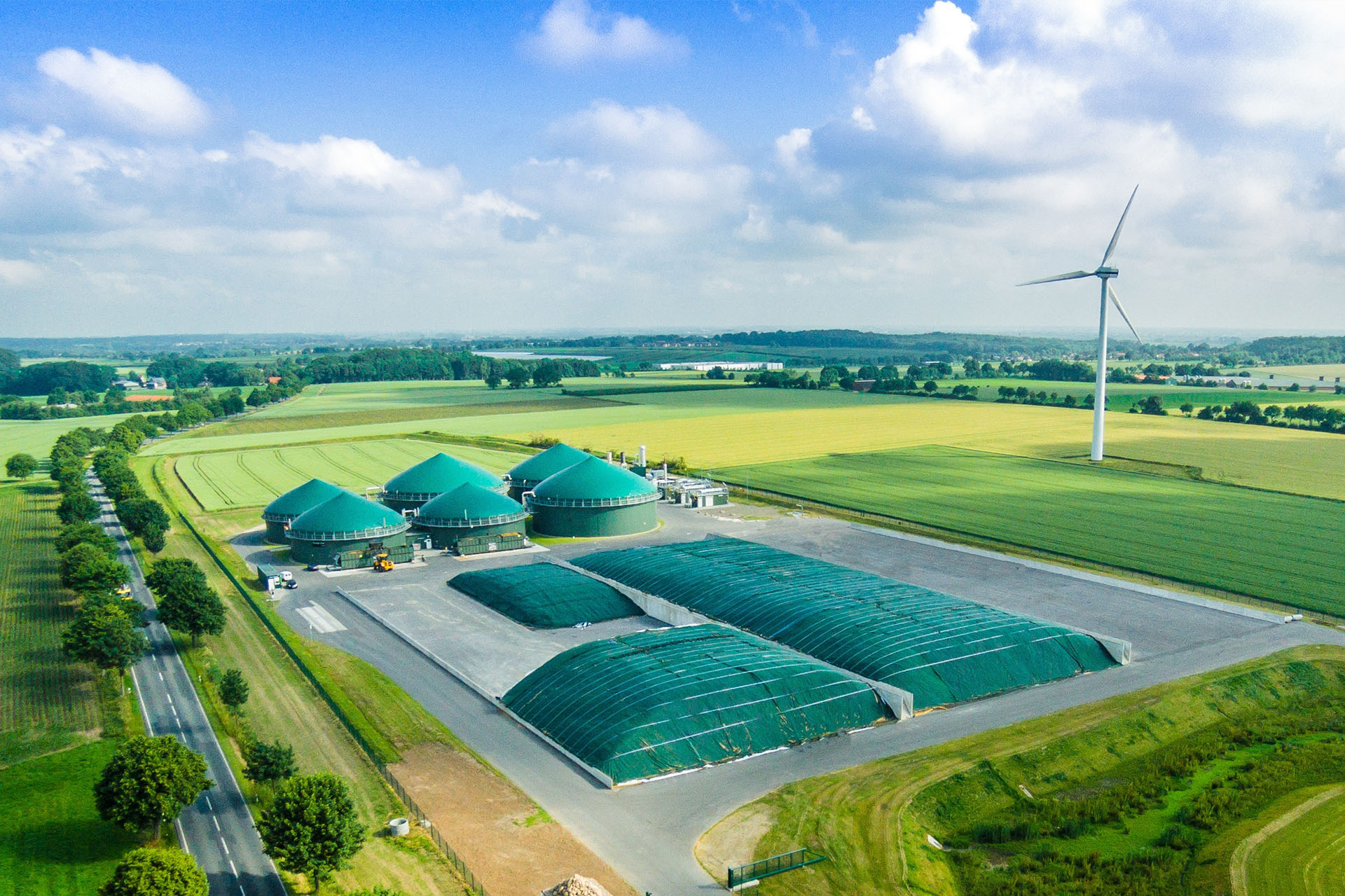
Bioenergie Geest and Kanadevia Inova Establish Company to Produce Bio-LNG
German biogas producer Bioenergie Geest GmbH & Co. KG and Swiss greentech firm Kanadevia Inova have established a company in Apensen, Germany, which will construct an installation producing 2,100 tonnes of bio-LNG from sustainably generated biogas annually by the end of 2023. The green fuel and the associated greenhouse gas quotas will be sold on the German vehicle fuel market, thus contributing to the decarbonisation of the transport sector.
Apensen, German. At the end of April the German biogas producer Bioenergie Geest and Swiss cleantech company Kanadevia Inova signed a contract to establish the joint venture company Apensen Verflüssigungs GmbH & CO. KG.
Flagship Project in Apensen: Upgrading Biogas to Produce Organic Fuel and Liquid CO2
Since 2011, Bioenergie Geest GmbH & Co. KG has been successfully operating a fermentation plant in Apensen, Lower Saxony, and a biogas upgrading unit supplied by the predecessor company of the current Kanadevia Inova BioMethan GmbH. Here biomethane is produced on the basis of renewable raw materials and fed into the grid. This classic plant design is now being further developed. This will involve switching the substrate fed into the plant to 80%-plus sustainable feed materials such as slurry and manure, as well as enhancing the existing gas upgrading unit by the addition of new systems for liquefying methane and CO2. The power for the new components is to be generated by the plant’s own existing combined heat and power unit.
In the future the 32 GWh/a or so of sustainable raw biogas will be used to produce around 2,100 tonnes of organic liquid gas for the vehicle fuels market. A by-product will be more than 4,000 tonnes of liquid CO2 used a substitute for fossil-based CO2 in industry. Upgrading the biogas will considerably reduce greenhouse gases: it will be possible to claim and sell over 20,000 annual tonnes of CO2equivalents in the form of greenhouse gas quotas (GHG quotas) under the new German legislation. The entire production chain is thus not only carbon neutral, but has a negative carbon footprint.
Greenhouse Gas Reduction the Main Driver of the Business Case
It is precisely these reductions in greenhouse gases, calculated and traded in the form of GHG quotas, that will enable the investment in the cryogenic liquefaction technology needed for the process. The basis for this is the European Renewable Energy Directive (RED II), which imposes concrete obligations on member states such as making the fuel mix increasingly green. In Germany this target is pursued by means of greenhouse gas reduction quotas within the Federal Immission Control Act. The law obliges distributors of fossil fuels to reduce their carbon footprint by 25% by 2030 (in relation to 2010). Recently this requirement has triggered considerable demand for sustainable biofuels and the associated GHG quotas.
Two Ideal Complementary Partners
For Bioenergie Geest the new partnership marks the continuation of a successful, longstanding cooperation to produce and process biomethane. “And it all revolves around regionalism, active climate protection and close cooperation with farmers,” emphasises Sven Plorin, one of the managers of Bioenergie Geest GmbH & Co.KG.
From the point of view of the Zurich-based global plant engineer and technology provider Kanadevia Inova and its wholly-owned subsidiary Kanadevia Inova BioMethan (HZIBM) in Zeven, the creation of the company with Bioenergie Geest is an important step in establishing their new gas liquefaction solutions in their home market of Germany. “For us the circumstances in Apensen and the partnership with Bioenergie Geest are the ideal opportunity to demonstrate our expertise in liquefaction at an extremely well-run biogas plant more or less on our own doorstep,” explains Jens Becker, CEO of Kanadevia Inova BioMethan, a wholly-owned subsidiary of Kanadevia Inova based in Zeven in the German state of Lower Saxony.
The plan is to start construction on the plant in Apensen in the course of this year, enabling the production of pure bio-LNG to commence towards the end of 2023.